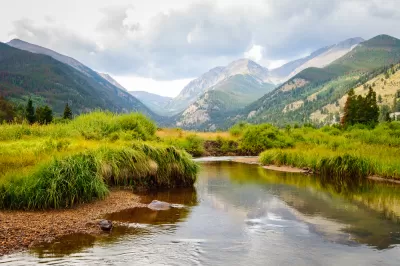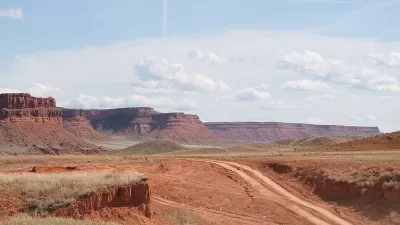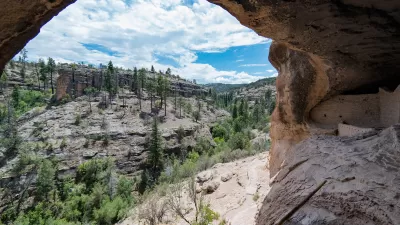Wealthy buyers are snapping up large parcels of land and imposing new rules. Residents say restricting access is not fair and the actions are affecting communities and their way of life.

Julie Turkewitz reports on the wealthy individuals buying up large amounts of land throughout the country, particularly in Western states:
Today, just 100 families own about 42 million acres across the country, a 65,000-square-mile expanse, according to the Land Report, a magazine that tracks large purchases. Researchers at the magazine have found that the amount of land owned by those 100 families has jumped 50 percent since 2007.
While some of these landowners have worked to restore and conserve wilderness areas, others have put in place restrictions that have angered local residents. For example, billionaires Dan and Farris Wilkes own 700,000 acres, including land in Idaho. Almost 300 miles of the Idaho property borders public lands, and they put up gates and signs prohibiting trespassing. "They also revoked road-use contracts that propped up the region’s multimillion-dollar snowmobile industry, shut down hunting on their land and told timber companies to pull crews from the area," writes Turkewitz.
Locals say these new landowners are taking away access to areas that they have used for generations, notes Turkewitz. "The arrival of this new class of landholders comes as the region is experiencing the fastest population boom in the country, which is driving up housing prices and the cost of living and leaving many residents fearful of losing their culture and economic stability."
FULL STORY: Who Gets to Own the West?

Planetizen Federal Action Tracker
A weekly monitor of how Trump’s orders and actions are impacting planners and planning in America.

Congressman Proposes Bill to Rename DC Metro “Trump Train”
The Make Autorail Great Again Act would withhold federal funding to the system until the Washington Metropolitan Area Transit Authority (WMATA), rebrands as the Washington Metropolitan Authority for Greater Access (WMAGA).

DARTSpace Platform Streamlines Dallas TOD Application Process
The Dallas transit agency hopes a shorter permitting timeline will boost transit-oriented development around rail stations.

Supreme Court Ruling in Pipeline Case Guts Federal Environmental Law
The decision limits the scope of a federal law that mandates extensive environmental impact reviews of energy, infrastructure, and transportation projects.

Texas State Bills to Defund Dallas Transit Die
DART would have seen a 30% service cut, $230M annual losses had the bills survived.

Bikeshare for the Win: Team Pedals to London Cricket Match, Beats Rivals Stuck in Traffic
While their opponents sat in gridlock, England's national cricket team hopped Lime bikes, riding to a 3-0 victory.
Urban Design for Planners 1: Software Tools
This six-course series explores essential urban design concepts using open source software and equips planners with the tools they need to participate fully in the urban design process.
Planning for Universal Design
Learn the tools for implementing Universal Design in planning regulations.
Roanoke Valley-Alleghany Regional Commission
City of Mt Shasta
City of Camden Redevelopment Agency
City of Astoria
Transportation Research & Education Center (TREC) at Portland State University
US High Speed Rail Association
City of Camden Redevelopment Agency
Municipality of Princeton (NJ)





























